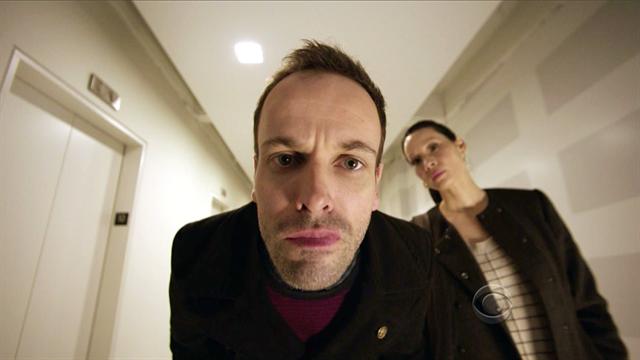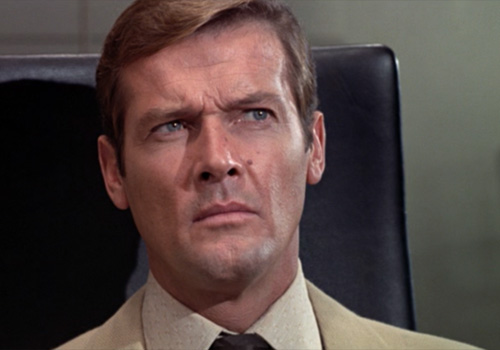The Good Wife, Season 6, Episode 6: “Old Spice”
Written by Leonard Dick
Directed by James Whitmore, Jr.
Airs Sundays at 9pm on CBS
For all of the huge life changes Alicia Florrick has had to endure over the course of The Good Wife’s five-and-change seasons, one character trait has always remained: her atheism. Alicia has never had the inclination towards belief in a higher power – at least, not one beyond the earthly plane. If anything, the years have made her ever more ruthlessly pragmatic as a matter of necessity. Her work and interpersonal relationships have been so toxic for so long that the notion of a loving, interventionist man upstairs has never been an option for her. Though many fans have long complained of the subplots given to Grace, Alicia’s pious daughter, their relationship proves to be the most fascinating aspect of “Old Spice,” an odd and somewhat scattered hour that divides its time between four plotlines that barely intersect.
The most successful of these is the primary Alicia plot, which sees her prepping for a key interview with influential pastor Jeremiah (Frankie Faison, adding yet another Wire alum to the series’ guest roster). Not only do these scenes return Eli’s delightful daughter Marissa to the fold in her new capacity as Alicia’s “body man,” they also exploit a key bit of dramatic irony that no other series would even consider. In order to be even remotely electable, Alicia has to at least appear open to Christianity,or at least the notion of God. So Alicia does what she’s always done when the G-word comes up: she defers to Grace. The scene In which Alicia and Grace confer, with both parties earnestly discussing Alicia’s lack of faith, is by far the episode’s strongest. There’s so much at work here: Alicia needs a viable strategy, but she doesn’t want to condescend to or exploit her daughter’s earnest feelings, nor use Grace as campaign ballast. When the interview finally comes, Alicia crosses another ethical line by outright lying about her beliefs, albeit in classic faux-pragmatic language involving simply “listening” for the possibility of God. She almost gets out with her dignity intact, until Pastor Jeremiah insists on an onscreen prayer session. And with that, Alicia Florrick sells her soul just a little more – by feigning a real interest in God. Grace feels the compromise, too, when her Bible study group praises her for her success in getting her mother to “open up” to the Lord; just a few reminders that The Good Wife handles religion utterly unlike any other series.
The rest of the plots are an awfully mixed bag. As much as we all love Elsbeth Tascioni, the subplot involving her Intolerable Cruelty-esque affair with AUSA Perotti (Kyle MacLachlan, at his MacLachlanest for the second time this week; see also Agents of SHIELD) is…less than great. Is it amusing to watch Elsbeth get flustered in court? Sure. Is there humor in her discovering an insatiable love for Carly Rae Jepsen’s gloss-pop earworm “Call Me Maybe”? Sure. Is the visual of MacLachlan and Preston destroying each other’s wardrobe with unbridled passion delightfully odd? I’ll grant that, too. Sticking all of that wackiness in the same episode, along with Perotti’s seduction style – part drunk senator, part Pépé Le Pew – is just laying it on too damned thick for one episode to handle. It comes at a strange time, too, with “Shiny Objects” having just shown us how Elsbeth ticks with a sensible balance of humor and intelligence.
Better, though a little aimless, is the return of Linda Lavin as Cary’s pretrial supervisor, who drops in to catch Cary at a particularly compromising moment. While the lawyer Cary brings to his apartment probably wasn’t marriage material – she claims to be turned on by the notion of Cary getting gang-raped in prison – it’s still no fun to have a rare chance to cut loose rudely interrupted by a new threat of jailtime. I appreciate the way Lavin’s public servant is depicted throughout: all parties treat her as a nuisance, but unlike virtually everyone else in her vicinity, she’s doing a necessary job with a minimum of fuss or overt bias. Her total lack of a political agenda is refreshing.
Finally, we come to the story that matters most to long-term fans: Alicia and Diane retake their original office space…with Howard Lyman (Jerry Adler) in tow. The long game appears to be the same as it has been for some time: Alicia is slowly recreating her old firm, one step at a time. That makes sense: for all of her supposed high-mindedness, Alicia hasn’t been doing much more than paying lip service to ethical behaviour for a long time. Hell, even in this episode, one attempt to regain the property consists of trying to ding Louis Canning for building-code violations based on the fact that they don’t conform to disability accessibility laws. That is profoundly mean-spirited – and it doesn’t even work! One of the challenges of the season from here on out will be keeping that inexorable downward spiral from getting monotonous.
Other thoughts:
Judge(s) of the week: Ana Gasteyer is back after a long absence as Judge Patrice “In Your Opinion” Lessner; at this point, pretty much everyone knows the drill. Handling Cary’s case this week is John Procaccino, who gets in one of the best line readings of the week. (“That’s unfortunate. I don’t care.”)
“What’s the struggle?” “Politics.” The way that Grace and Alicia’s interaction finds common ground in their frustrations with life, despite their totally divergent views on spirituality, is almost profound.
Despite all of the overt slapstick this week, the biggest laugh comes courtesy of a simple gag from a witness taking the stand: “Landrusyshym. Spelled in the usual way.”
Alicia moves into Will’s old office. Damn.
Finally, the Good Wife take on public relations, in a nutshell:
“They deserve to know who you are.”
“I’m an atheist.”
[pause]
“They deserve to know who we want them to think you are.”







